
The Natural Law Party (NLP) is a political party in Michigan and was a national political party in the United States affiliated with the international Natural Law Party. It was founded in 1992, but beginning in 2004 many of its state chapters dissolved. The party's Michigan chapter is still active as of 2021.

The 1996 United States presidential election was the 53rd quadrennial presidential election, held on Tuesday, November 5, 1996. Incumbent Democratic President Bill Clinton defeated former Senate Majority Leader Bob Dole, the Republican nominee, and Ross Perot, the Reform Party nominee.

The Constitution Party, formerly the U.S. Taxpayers' Party until 1999, is a political party in the United States that promotes a religious conservative view of the principles and intents of the United States Constitution. The party platform is based on originalist interpretations of the Constitution and shaped by principles which it believes were set forth in the Declaration of Independence, the Bill of Rights, the Constitution and the Bible.
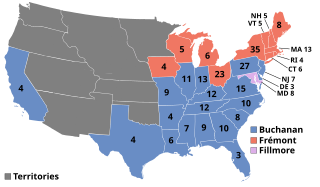
The 1856 United States presidential election was the 18th quadrennial presidential election, held on Tuesday, November 4, 1856. In a three-way election, Democrat James Buchanan defeated Republican nominee John C. Frémont and Know Nothing nominee Millard Fillmore. The main issue was the expansion of slavery as facilitated by the Kansas–Nebraska Act of 1854.

Patrick Joseph Buchanan is an American paleoconservative political commentator, columnist, politician, and broadcaster. Buchanan was an assistant and special consultant to U.S. Presidents Richard Nixon, Gerald Ford, and Ronald Reagan. He is a major figure in the modern paleoconservative movement in America, and his writings, morals, values, and strategic thinking have continued to influence many paleoconservatives.
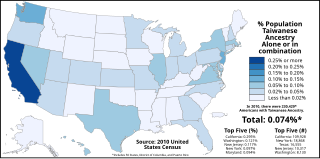
Taiwanese Americans are Americans who carry full or partial ancestry from Taiwan. This includes American-born citizens who descend from migrants from Taiwan.

The Reform Party of the United States of America (RPUSA), generally known as the Reform Party USA or the Reform Party, is a political party in the United States, founded in 1995 by Ross Perot.

Ezola Broussard Foster was an American conservative political activist, writer, and politician. She was president of the interest group Black Americans for Family Values, author of the book What's Right for All Americans, and the Reform Party candidate for Vice President in the U.S. presidential election of 2000 with presidential nominee Pat Buchanan. In April 2002, Foster left the Reform Party for the United States Constitution Party.

California Proposition 187 was a 1994 ballot initiative to establish a state-run citizenship screening system and prohibit illegal immigrants from using non-emergency health care, public education, and other services in the State of California. Voters passed the proposed law at a referendum on November 8, 1994. The law was challenged in a legal suit the day after its passage, and found unconstitutional by a federal district court on November 11. In 1999, Governor Gray Davis halted state appeals of this ruling.
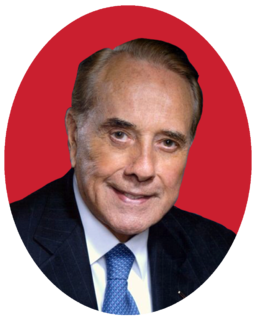
The 1996 Republican National Convention convened at the San Diego Convention Center (SDCC) in San Diego, California, from August 12 to August 15, 1996. The convention nominated former Senator Bob Dole from Kansas, for president and former Representative and secretary of Housing and Urban Development Jack Kemp, from suburban Buffalo, New York, for vice president.
The "Stand By Your Ad" provision (SBYA) of the Bipartisan Campaign Reform Act, enacted in 2002, requires candidates in the United States for federal political office, as well as interest groups and political parties supporting or opposing a candidate, to include in political advertisements on television and radio "a statement by the candidate that identifies the candidate and states that the candidate has approved the communication". The provision was intended to force political candidates running any campaign for office in the United States to associate themselves with their television and radio advertising, thereby discouraging them from making controversial claims or attack ads.
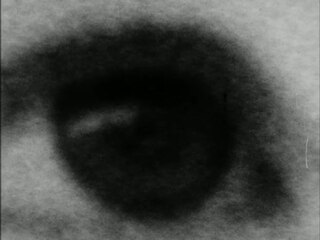
In politics, campaign advertising is the use of an advertising campaign through the media to influence a political debate, and ultimately, voters. These ads are designed by political consultants and political campaign staff. Many countries restrict the use of broadcast media to broadcast political messaging. In the European Union, many countries do not permit paid-for TV or radio advertising for fear that wealthy groups will gain control of airtime, making fair play impossible and distorting the political debate in the process.
The California Republican Party (CAGOP) is the affiliate of the United States Republican Party in the U.S. state of California. The party is based in Sacramento and is led by chair Jessica Millan Patterson.

The 2008 United States Senate election in North Carolina was held on Tuesday, November 4, 2008. The Senate election coincided with the presidential, U.S. House elections, gubernatorial, Council of State, and statewide judicial elections. Incumbent Republican U.S. Senator Elizabeth Dole ran for re-election to a second term, but was defeated by Democrat Kay Hagan.
The 2008 presidential campaign of Tom Tancredo, a Congressman from Colorado began on April 2, 2007 with a formal announcement. The campaign garnered grassroots support and endorsements from conservative Republicans concerned about illegal immigration and border security. However, Tancredo remained low in the polls and was criticized for his nativist campaign, which had been described as "single-issued." Tancredo stated that he probably would not win the nomination but hoped his campaign would bring forth more debate on his issue of concern, immigration. On December 20, 2007 Tancredo withdrew from the presidential race, and endorsed Mitt Romney.
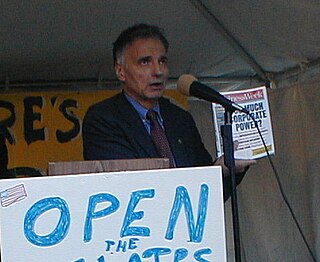
The 2000 presidential campaign of Ralph Nader, political activist, author, lecturer and attorney, began on February 21, 2000. He cited "a crisis of democracy" as motivation to run. He ran in the 2000 United States presidential election as the nominee of the Green Party. He was also nominated by the Vermont Progressive Party and the United Citizens Party of South Carolina. The campaign marked Nader's second presidential bid as the Green nominee, and his third overall, having run as a write-in campaign in 1992 and a passive campaign on the Green ballot line in 1996.
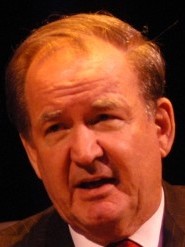
Following Ross Perot's impressive showing during the 1996 presidential election, the Reform Party of the United States of America became the country's largest third party. The party's 2000 presidential candidate would be entitled to $12.5 million in matching funds. Several high-profile candidates vied for the nomination, including Donald Trump, Pat Buchanan, and physicist John Hagelin. For a brief time, Congressman John B. Anderson and Congressman Ron Paul were considered potential candidates, but both ultimately declined to seek the nomination.
Mike Tompkins is a U.S. politician who was the Natural Law Party vice presidential candidate during the 1992 and 1996 presidential elections.

The 2000 presidential campaign of Pat Buchanan, conservative pundit and adviser to both President Richard Nixon and Ronald Reagan, was formally launched on March 2, 1999, as Buchanan announced his intention to seek the Republican Party nomination for the presidency of the United States in the 2000 presidential election. It marked Buchanan's third primary campaign for the presidency, following his bids in 1992 and 1996. Although he had not attained the nomination either time, he had been regarded as a consequential figure within the party. Early primary surveys found Buchanan polling in the single digits, and following the publication of his book A Republic, Not an Empire, which generally advocated for noninterventionist and "America first" foreign policy, some within the Republican Party condemned Buchanan's foreign policy views. There began to be speculation that Buchanan would leave the Republican Party in favor of the Reform Party, a third party which qualified for matching federal campaign funds.

New York real estate magnate Donald Trump announced the creation of a presidential exploratory committee on the October 7, 1999, edition of Larry King Live on CNN. Although Trump had never held elected office, he was well known for his frequent comments on public affairs and business exploits as head of The Trump Organization. He had previously considered a presidential run in 1988 as a Republican, but chose not to run. For 2000, Minnesota Governor Jesse Ventura persuaded Trump to seek the presidential nomination of the Reform Party, which was fracturing despite achieving ballot access and qualifying for matching funds as a result of businessman Ross Perot's 1996 presidential campaign on the party's ticket.


















